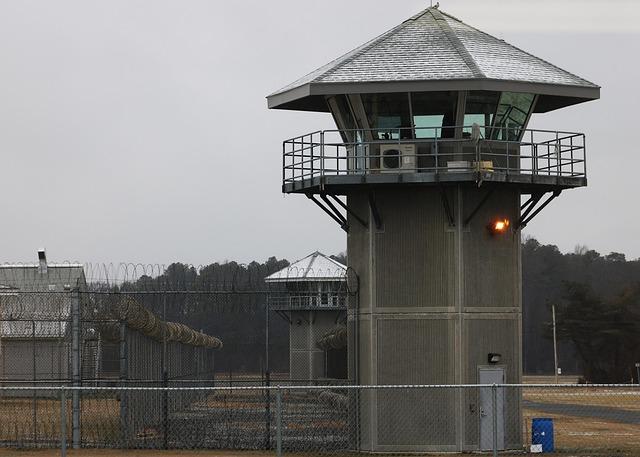Nicolas Sarkozy, the former president of France, has entered an unexpected chapter in his lifeŌĆöthis time not in the halls of power, but behind bars. The once influential leader, who served as the countryŌĆÖs head of state from 2007 to 2012, is now a prison inmate, a development that has captured international attention. This article explores the key facts about SarkozyŌĆÖs rise to prominence, his political legacy, and the circumstances that led to his incarceration, shedding light on the unprecedented fall of one of FranceŌĆÖs most notable contemporary figures.
Nicolas SarkozyŌĆÖs Presidential Legacy Under Scrutiny in Prison
Nicolas Sarkozy, who served as FranceŌĆÖs president from 2007 to 2012, now finds his historic political career overshadowed by his incarceration. His legacy, marked by ambitious reforms and a confrontational style, is being re-evaluated through the prism of legal troubles that have culminated in a prison sentence. This unprecedented chapter in French politics raises questions about the intersection of power, justice, and accountability.
Key aspects shaping this new chapter include:
- Legal challenges: SarkozyŌĆÖs conviction on corruption charges signals a dramatic fall from grace for a former head of state.
- Public reaction: Divided opinions reflect the polarized views of his presidency and subsequent legal fate.
- Political implications: His imprisonment may embolden calls for stricter oversight of political figures.
| Years in Office | Major Policies | Imprisonment Status |
|---|---|---|
| 2007 ŌĆō 2012 | Economic Reform, Immigration Control, EU Relations | Convicted (2024), Serving Sentence |
Legal Battles and Corruption Charges That Led to Incarceration
Nicolas SarkozyŌĆÖs fall from grace was marked by a series of protracted legal battles that unveiled a web of corruption allegations during and after his presidency. The most significant charges stem from accusations of illegal campaign financing and bribery, which ultimately led to his conviction and incarceration. Among these, the so-called “Bygmalion affair” was a pivotal scandal, where Sarkozy was accused of orchestrating a massive scheme to overspend on his 2012 re-election campaign through false invoices. This legal blow was compounded by the 2021 conviction related to the “wiretapping case,” where Sarkozy was found guilty of attempting to bribe a judge to obtain confidential information.
Key Legal Proceedings:
- Bygmalion affair: Illegal campaign financing and forged invoices
- Wiretapping scandal: Attempted bribery of a magistrate
- Lakhdar Brahimi case: Involvement in illicit negotiation attempts
| Case | Charges | Outcome | Sentence |
|---|---|---|---|
| Bygmalion Affair | Illegal Campaign Financing | Convicted | 1 year imprisonment (suspended) |
| Wiretapping Case | Bribery and Influence Peddling | Convicted | 3 years imprisonment (1 year firm) |
| Other Corruption Charges | Attempted Illicit Negotiations | Ongoing/Pending | ŌĆö |
The culmination of these legal challenges led to an unprecedented outcome: a former French president behind bars. SarkozyŌĆÖs imprisonment marks a historic milestone in French politics, highlighting the judiciaryŌĆÖs growing resolve to hold even the highest officials accountable. His incarceration serves as a stark reminder of the intricate connections between power and corruption, leaving a profound impact on the nationŌĆÖs political landscape.
Implications for French Politics and Public Trust
The incarceration of a former French president has cast a long shadow over the nationŌĆÖs political landscape, raising pressing questions about accountability and the integrity of the political class. Nicolas SarkozyŌĆÖs legal troubles and subsequent imprisonment have sparked intense debates on the ethical standards expected from public officials. In a country where trust in institutions is already fragile, this unprecedented event risks exacerbating public cynicism and skepticism. Many citizens are now demanding stronger mechanisms to prevent corruption and abuse of power, reflecting a growing impatience with the political elite.
Key consequences for the French political system include:
- Increased scrutiny of politiciansŌĆÖ financial transparency and conduct.
- A rise in calls for judicial reforms to expedite high-profile cases.
- Potential shifts in voter behavior to favor more reformist or outsider candidates.
- Challenges for mainstream parties in regaining public confidence.
| Public Trust Indicator | Before Sarkozy Scandal | After Imprisonment |
|---|---|---|
| Trust in Government (%) | 45% | 33% |
| Belief in Political Integrity (%) | 38% | 25% |
| Support for Anti-Corruption Movements (%) | 20% | 47% |
Expert Advice on Navigating High-Profile Political Scandals
Understanding the dynamics of political scandals, especially those involving former heads of state, requires a multifaceted approach. Experts emphasize the importance of contextual analysis, urging observers to consider the broader political climate, the legal framework, and the individual’s historical influence. In SarkozyŌĆÖs case, his transition from the ├ēlys├®e Palace to a prison cell underscores how the intersection of power and accountability operates within a democratic system. This serves as a cautionary tale for politicians worldwide, illustrating that no one is entirely immune to legal scrutiny ŌĆö irrespective of their past prestige.
- Legal Transparency: How judicial processes are made visible to the public is key in maintaining trust during scandal investigations.
- MediaŌĆÖs Role: Balanced reporting helps demystify complex political entanglements, guiding public opinion responsibly.
- Political Implications: Scandals can shift party dynamics and influence upcoming elections, reshaping national agendas.
In navigating high-profile cases, analysts recommend a critical, evidence-based perspective combined with patience, noting that premature judgments often cloud the true implications for governance and democracy. By studying past precedents globally, one can glean valuable lessons on crisis management and ethical governance. The Sarkozy episode invites a renewed discussion on how societies reconcile with leadership failures and reinforce institutional checks that uphold justice beyond political stature.
Wrapping Up
As Nicolas Sarkozy begins his sentence, the unprecedented chapter of a former French president turned prison inmate underscores the complex intersection of power, accountability, and justice in modern France. His story serves as a stark reminder that no individual, regardless of stature, is above the law. As the nation watches closely, the implications of his conviction will continue to resonate through the political landscape for years to come.




